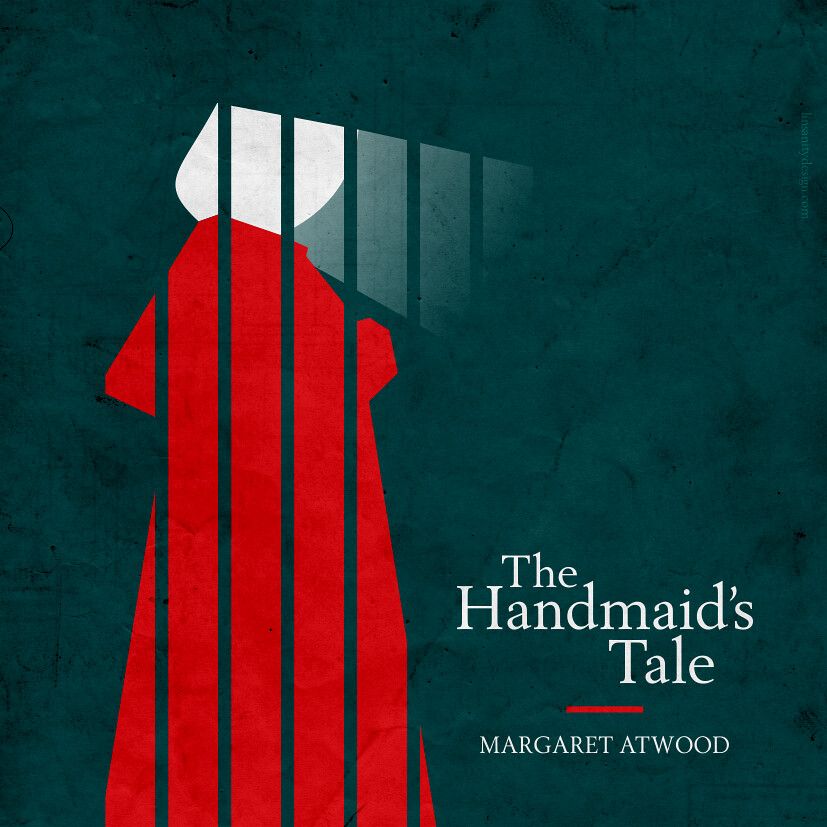The Hits and Misses of Popular Book-to-TV Adaptations

When the first season of “Game of Thrones” hit the small screens in 2011, it jump-started a trend that would create some of the best television of this decade. The book-to-movie adaptation is over; long live the book-to-television adaptation. At the 2017 Primetime Emmy Awards, the two shows that ended the night tied for the most awards were both series based on novels: “The Handmaid’s Tale” and “Big Little Lies.”
While adapting a popular novel into a television series seems like a surefire way to guarantee an audience, this method also comes with a built-in expiration date. Book-to-movie adaptations largely follow the rule that if there are no more books to adapt, the movie franchise is over. Although many popular films stretched this rule a little by splitting the final installment into two parts, most famously done with “Harry Potter,” it would have been unimaginable for Warner Bros. to announce that they would be releasing a ninth “Harry Potter” movie of their own creation.
Recently, however, popular book-to-television adaptations have avoided this rule, creating new seasons of shows that expand past the storylines of the original book(s) in order to both satiate fans hungry for more and continue to cash in on a franchise that has proven successful. What may have been an unimaginable concept before has now become the norm; the three most anticipated and highly advertised television seasons of spring and summer 2019 were all releasing new seasons that went beyond where the books left off. And while the new seasons began with excitement, by the time viewers binged all of the episodes, many were left questioning if a mediocre season is really better than no season at all.
By far the biggest disappointment was the eighth season of “Game of Thrones,” whose six episodes left many fans bewildered about how a show that had so far been unprecedented in success and popularity could fall so far in its final season. On the one hand, disappointment was almost inevitable considering the show writers had just six episodes to wrap up the plot of seven seasons and dozens of characters. On the other hand, missteps such as the season’s abandonment of previous plotlines, actions by fan favorites that seemed extremely out of character and the infamous Starbucks cup that appeared on a table during a feast in episode four repeatedly proved that the season missed chances to be, if not great, at least better.
“Thrones” is based on George R.R. Martin’s “A Song of Ice and Fire” series, which currently has a total of five books published out of a planned seven. The first six seasons of “Thrones” were largely based on those first five books, while the seventh season was guided by a book Martin has been working on since 2011. In the case of the final novel which corresponds with the final season, Martin has stated he had not started writing by the time season eight premiered. Could having a book saved season eight of “Thrones”? Probably. It is likely that the final book, “A Dream of Spring,” will finish off all of the plotlines the show seemingly forgot about, and it definitely will not contain any references to Starbucks.
Ultimately, “Thrones” had to make its final season long before the book was ready, but it was probably other choices that caused the season to be the lowest ranked on IMDb by far. Creating a season of the traditional 10 episodes instead of only six would have allowed for more character development. Additionally, more episodes could have allowed for time to be spent on plotlines that were otherwise written out and would have provided a better wrap-up to the show.
HBO’s other biggest release of the summer, the second season of “Big Little Lies,” had a similar but different problem to that of “Thrones.” Originally created as a miniseries based on the novel by Liane Moriarty of the same name, the show won five out of the eight Emmys it was nominated for, capturing almost every accolade in the “limited series” category. Before the 2017 Emmy nominations were released, director of the first season, Jean-Marc Vallée, stated in an interview with “Vulture” that in his opinion, “if we do a season two, we’ll break that beautiful thing and spoil it.” However, after the announcement of the season’s nomination for Outstanding Limited Series, HBO began considering a second season, but did not officially announce the news until the Emmys were over and the voting period for the Golden Globes Awards and Critics Choice Awards had ended. This move, largely considered deceptive by rival shows nominated in the limited series category, led to outrage about HBO’s intentions for the show.
Ethics aside, creating a second season of a show for the sole purpose of hoping to win more awards is not the best motivation, especially after the director himself spoke out against the idea by stating that season one already had “the perfect ending.” Creating a season two of “Lies” was also especially challenging considering the main propellant of season one’s plot was solving of a murder case. The mystery of a murder at a school fundraiser in the affluent and idyllic town of Monterey, California immediately captured the viewer’s interest and creates suspense as each episode the characters inched closer toward that fateful night.
In the second season, however, there is no mystery to anchor the season. The main question of the season is whether the protagonists will be discovered in their connection to the murder, but this concern does not feel particularly urgent or even believable, as there is never any explanation for why the one detective shown is so obsessed with this case that she follows the protagonists around like a strange, adult Nancy Drew.
There is simply nothing else that can be revealed about these characters without the show becoming ridiculous. An attempt at a shocking reveal about Meryl Streep’s character in the final episode does not deliver the intended punch and is, more than anything, just sad. Although there was great acting from the all-star cast this season, there really was not enough meat plot-wise to guide that talent. The second season of “Lies” was not necessarily bad television; the problem is that it was unnecessary. As one review from “Vanity Fair” put it, it was the season that “was never supposed to exist.” “Lies” should serve as a lesson that more of a good thing is not always better and that there is no shame in letting a great season of television stand on its own.
Unlike “Game of Thrones” and “Big Little Lies” this summer’s season was not the first time “The Handmaid’s Tale” expanded beyond Margaret Atwood’s 1985 novel. The show did so in its second season as well. Unlike its most recent season, the second season of “Tale” highlighted the potential that a television series can have to expand on the world a novel has created. The sophomore season of the show expanded far beyond the walls of the Commander’s house, where the majority of the novel is set, to places such as the horrific colonies and the safe haven of Canada, locations which are referenced in the novel but never actually explored.
Additionally, the second season took the opportunity to develop secondary characters outside of its protagonist, June (Offred in the novel) (Elisabeth Moss), such as Ofglen/Emily (Alexis Bledel) and Nick (Max Minghella), in a way that the novel’s first-person narration could not allow. The broadened scope of the second season allowed the show to explore places and people that the novel was unable to, but still managed to feel true to the novel’s style.
However, the most recent season of “Tale” faltered by forgetting the advantage it had in expanding where the novel could not. The third season centers its narrative on June, largely at the cost of the secondary characters developed in the past season. This narrow focus is what makes this season feel suffocating, especially since the writers of the show, for most of the season, seemed at a loss with what else to have June do within the confines of Gilead.
This feeling of suffocation and lack of direction for June’s character is epitomized in the season’s ninth episode “Heroic.” The vast majority of this episode is spent in one room with one character, as June is forced to stand vigil at the hospital bed of a brain-dead handmaid who is being kept on life support until her baby is able to be delivered. What resulted from this premise is a bizarre 50 minutes of Moss singing “Heaven is a Place on Earth” to herself and an episode that could be entirely removed from the season without having any effect on its plotline.
Although the season did have great moments outside of this, it is easy to feel like the 13 episodes were a bad rerun. Rather than trying to broaden the novel’s world or its characters in this season, the show mainly relied on what had worked for it in the past: Moss dramatically staring down the camera before doing something heroic — but even this got old.
However, unlike “Game of Thrones” and “Big Little Lies,” which are unlikely to have any new episodes, a fourth season of “Tale” is already confirmed. Hopefully, this upcoming season will be able to justify its own existence by providing some new material rather than just replaying its greatest hits.





Comments ()